The AI Customer Service Stack: 12 Tools in 2026 (Compared)

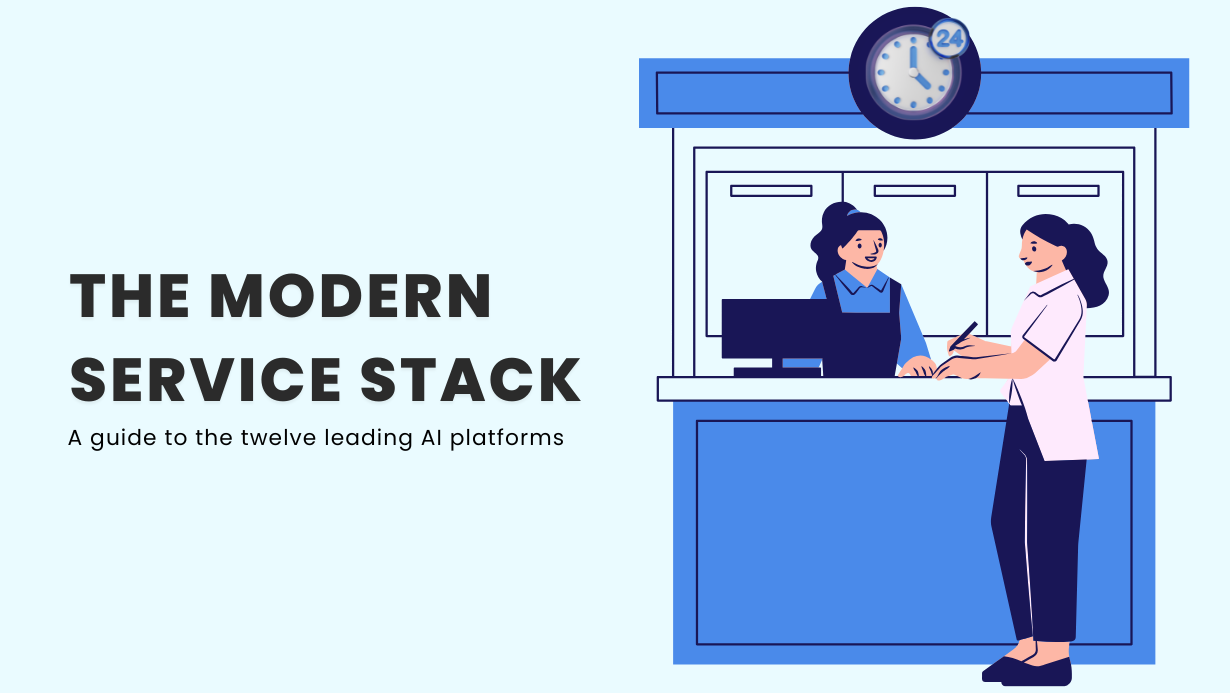
The AI Customer Service Stack 2026 covers 12 leading customer service tools. The list covers systems like YourGPT, Zendesk AI, and Salesforce Service Cloud that help scale personalized support.
Customer service in 2026 is defined by speed, accuracy, and personal attention.
People want quick answers on every channel and expect businesses to understand their needs without long waits.
AI has become the quiet partner behind this change. It helps teams reply instantly, summarise long chats, and route complex issues to the right person. Support feels faster, smoother, and more consistent for both customers and agents.
Recent studies show that most service leaders using AI have seen measurable gains in satisfaction and efficiency. What matters now is choosing the right platform that fits your business, your data, and your scale.
This blog covers the 12 best AI customer service tools in 2026, comparing how they perform in real operations across chat, email, voice, and automation.
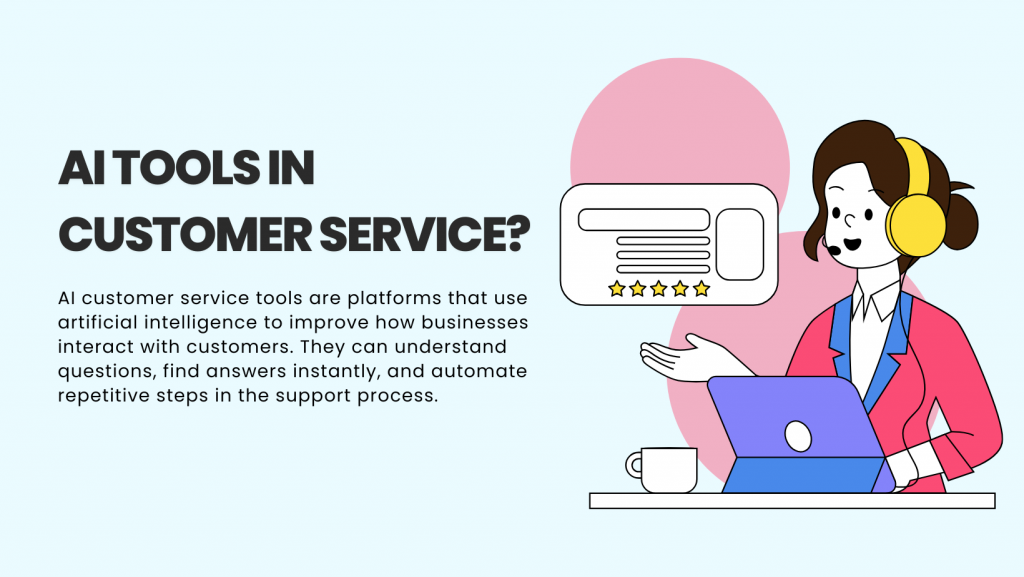
AI customer service tools are platforms that use artificial intelligence to improve how businesses interact with customers. They can understand questions, find answers instantly, and automate repetitive steps in the support process.
Instead of waiting for agents to handle every request, AI tools manage simple conversations on their own. They answer FAQs, check order status, schedule callbacks, or collect feedback, while complex cases are routed to the right team member.
Most modern systems combine chat, voice, email, and social channels into a single dashboard. A chatbot can start a conversation, voice AI can identify intent, and an agent assist panel can summarise messages or suggest accurate responses.
Businesses use these tools not to reduce headcount but to reduce wait times, improve accuracy, and maintain 24/7 support coverage. As a result, service teams spend more time solving high-value issues while customers get faster, more personal experiences.
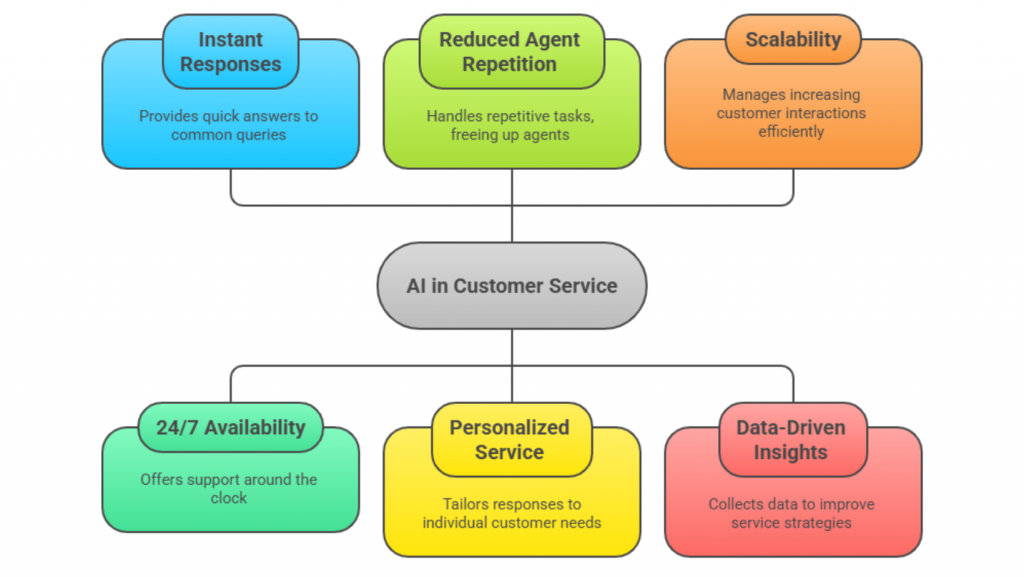
AI in customer service has moved from experiment to everyday use. Companies now rely on it to handle routine questions, speed up responses, and improve how teams work together. The right AI setup saves time, increases accuracy, and creates more satisfying experiences for customers.
Most support requests involve predictable questions such as order status, refund timelines, or password resets. AI can answer these instantly through chat or messaging, without waiting for an agent to become available. Customers get information in seconds, and human staff can focus on priority cases.
AI support tools never pause for weekends or shifts. They allow customers to reach a business through chat, WhatsApp, or voice at any hour. This constant availability improves satisfaction and prevents ticket backlogs after holidays or promotions.
Repetitive queries often take up most of a support team’s time. AI filters and resolves these before they reach agents. For ongoing cases, AI can summarise past interactions and surface relevant details, saving agents from reading long histories. This makes every conversation shorter and more productive.
AI connects with CRM systems to understand a customer’s past purchases, preferences, and tone. It adjusts responses accordingly — suggesting relevant solutions instead of generic answers. This personalisation used to require manual lookup; now it happens instantly across thousands of chats.
Once trained properly, AI systems can handle hundreds of conversations at once. That allows teams to scale support during sales peaks without hiring temporary staff. Businesses maintain quality service while reducing overall support costs.
Every interaction becomes a data point. AI tools analyse these conversations to reveal patterns — such as recurring complaints, delayed shipments, or product issues. These insights help teams refine policies, improve products, and plan staffing more effectively.
AI ensures that answers remain uniform across chat, email, and voice. Customers receive the same information regardless of where they contact the brand. This consistency strengthens trust and prevents confusion caused by mixed messages.
Modern AI tools improve with every interaction. They identify new topics, correct earlier mistakes, and adapt to updated information. Over time, accuracy and tone improve naturally, reducing the need for constant manual training.
AI is not replacing customer service teams; it is making them more capable. The combination of automation and human understanding delivers faster, more reliable customer support that matches modern expectations.
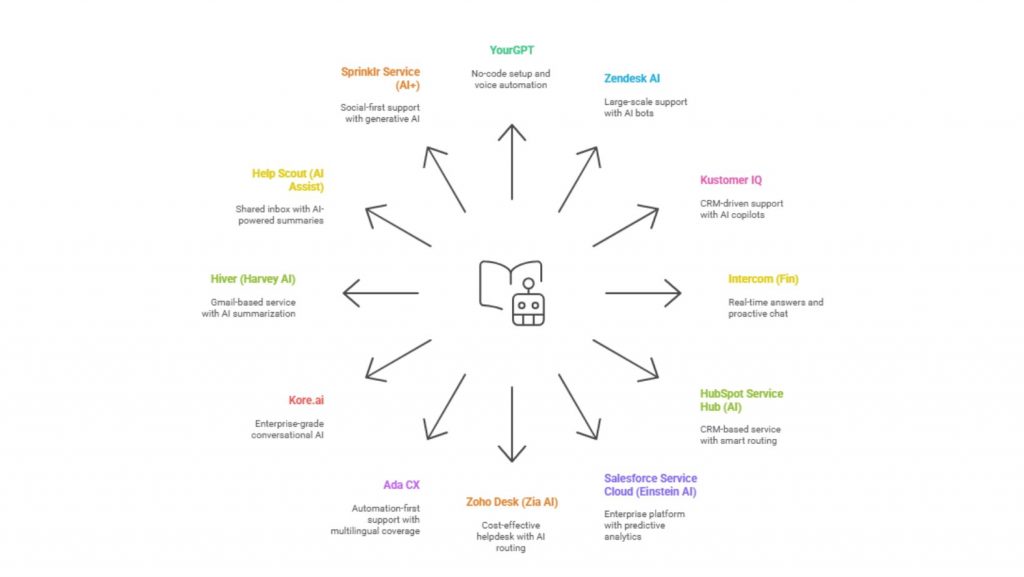
AI tools are transforming customer service from a reactive function into a driver of loyalty and growth. The platforms below represent the leading solutions in 2026, chosen for their ability to improve speed, personalization, and efficiency across support teams.
Each platform below has been selected for its strengths, scalability, and proven value in real-world support operations:

YourGPT is a complete AI-first customer service platform built to unify support, sales, and operations. It blends automation with human collaboration, allowing businesses to deliver faster, more consistent service without losing the personal touch. With no-code setup and advanced AI capabilities, it’s designed to meet the needs of both growing companies and enterprise teams.
The platform stands out because it centralizes every support channel into one system. Bots resolve routine queries, automate back-office workflows tasks, and agents can step in seamlessly for complex cases. This unified design enables a structured setup, ensuring smooth adoption and powerful collaboration across departments.
Best for: Organizations that want a complete AI platform to centralize customer service, sales and scale efficiently while maintaining control across all support channels.
Reviews:

Discover how YourGPT AI chatbot can streamline your customer service
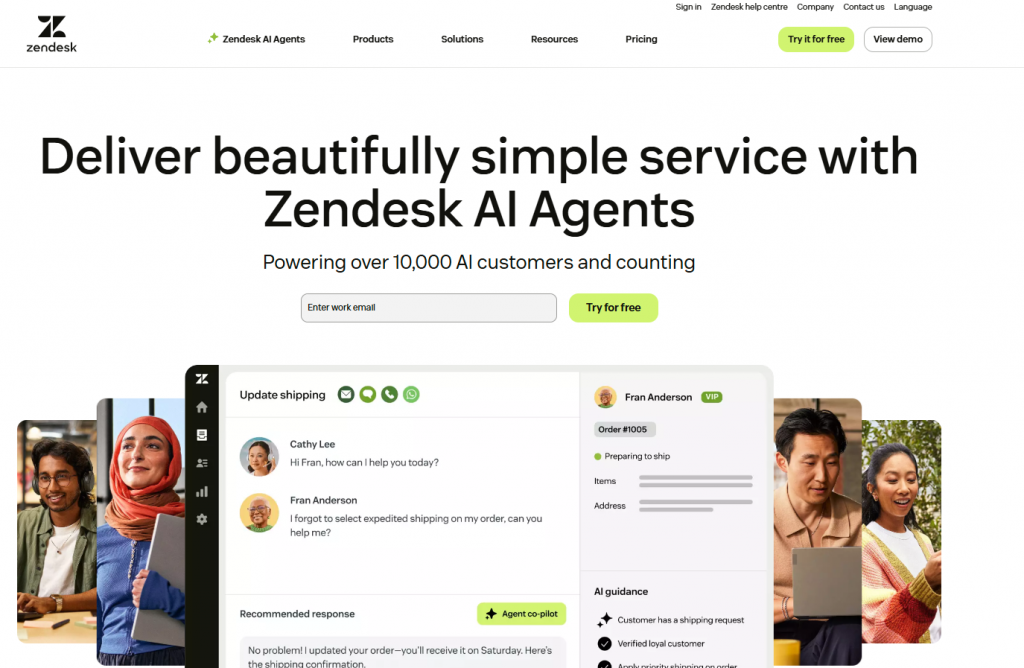
Zendesk AI builds on one of the most established customer service platforms by adding intelligent automation and conversational support. It is designed to help large support teams handle high volumes of requests with greater efficiency while improving the overall customer experience.
The platform stands out for its ability to ticket at scale. AI bots resolve routine issues instantly, intelligent triage routes tickets to the right agents, and copilots assist with faster, more accurate responses. However, the advanced features and enterprise-level capabilities can be costly for smaller businesses.
Best for: Enterprises managing large-scale customer operations that need efficiency, scalability, and integrated AI-driven support.
Reviews:


Kustomer IQ is a customer service platform that combines CRM functionality with AI to give agents a complete view of every interaction. Its unified timeline ensures that all past conversations, purchases, and preferences are visible in one place, helping teams deliver faster and more personalized support.
The platform stands out for the way it integrates AI directly into agent workflows. AI copilots provide guidance during live conversations, chatbots resolve FAQs and transactional requests, and Voice AI strengthens call center operations. While it offers powerful context-driven support, Kustomer IQ works best when used within the broader Kustomer CRM ecosystem.
Best for: Businesses that need complete visibility into customer interactions and want AI-driven support tied closely to CRM data.
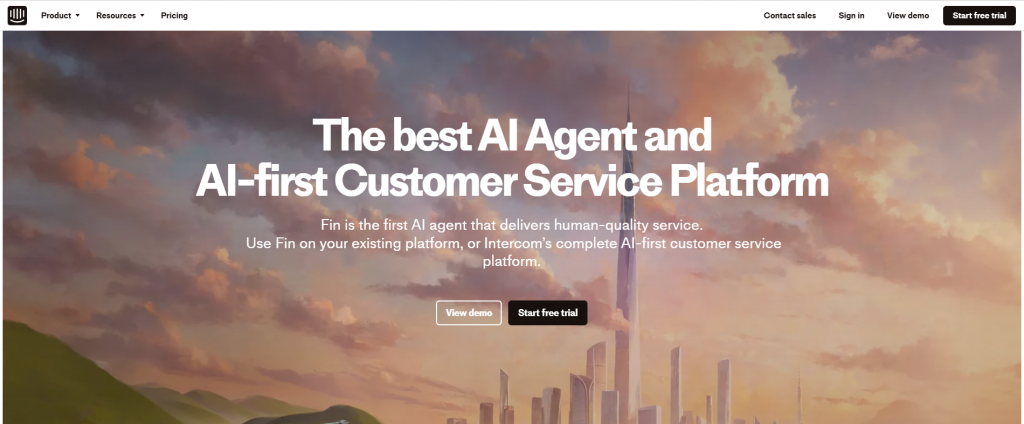
Intercom’s AI agent, Fin, is designed to deliver fast, contextual answers that feel natural and accurate. By combining conversational AI with a business’s knowledge base, it helps customers get instant support while reducing the workload on agents.
The platform stands out for its ability to drive proactive engagement. Fin not only answers questions but also initiates conversations that prevent churn, recover abandoned carts, and improve overall customer retention. It also includes AI-driven reporting and analytics for continuous optimization. However, costs can rise quickly as usage scales, making it better suited for businesses with higher budgets.
Best for: SaaS companies and digital-first businesses that want proactive, AI-driven engagement alongside customer support.
Reviews:


HubSpot Service Hub (AI) brings artificial intelligence directly into its CRM ecosystem, giving teams a single platform to manage sales, marketing, and customer support. By connecting customer data across touchpoints, it helps service teams deliver faster and more personalized experiences.
The platform stands out for its ability to streamline case management with AI-powered tools. Smart ticket routing ensures issues reach the right agent, past conversations are automatically summarized for quick context, and AI assists in creating chatbots and knowledge base content. While powerful, it works best for teams already using HubSpot products.
Best for: SMBs seeking a unified platform that combines CRM, AI-driven service, and customer support tools.
Reviews:

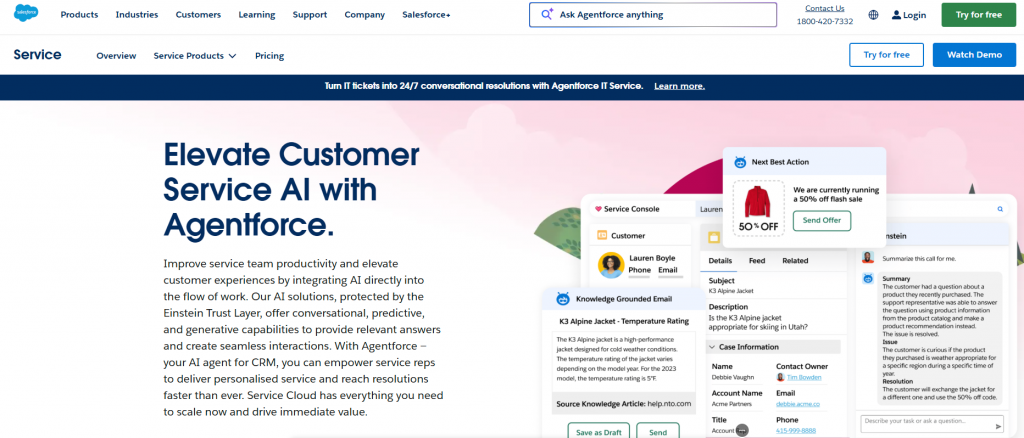
Salesforce Service Cloud, powered by Einstein AI, is built for enterprises that need advanced customer service capabilities at scale. It combines CRM data with predictive intelligence to help teams anticipate customer needs and deliver more proactive support.
The platform stands out for its depth of features and enterprise-grade flexibility. Einstein Copilot assists agents in real time with contextual recommendations, while omnichannel case routing ensures inquiries are handled efficiently across email, chat, and voice. However, setting up and maintaining the system requires specialized expertise and significant resources, making it best suited for global organizations.
Best for: Global enterprises already using Salesforce CRM that need advanced, scalable AI-driven support.
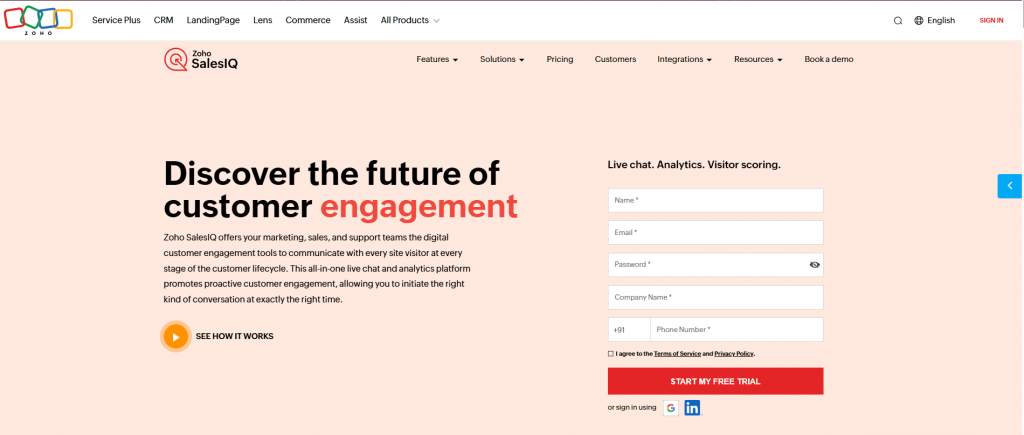
Zoho Desk is a customer service platform that balances affordability with AI capabilities, making it an attractive option for smaller teams. Its AI assistant, Zia, helps support agents manage incoming requests more effectively by automating repetitive tasks and prioritizing cases.
The platform stands out for delivering enterprise-style features at a fraction of the cost. Zia analyzes customer sentiment, categorizes and routes tickets automatically, and provides insights through real-time analytics. While powerful for its price point, it is less customizable than some higher-end enterprise solutions.
Best for: Small and mid-sized teams looking for cost-effective AI support with essential automation and analytics.
Reviews:

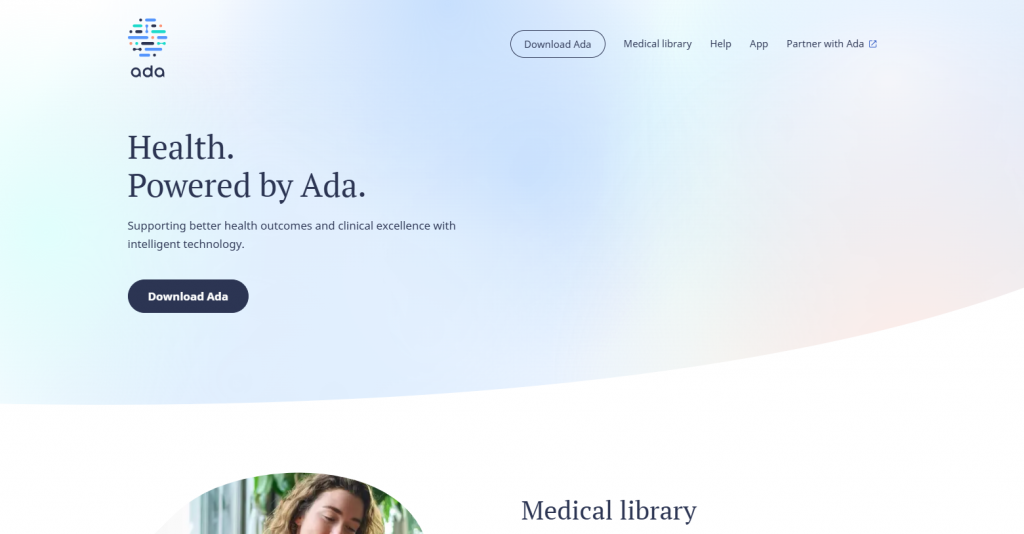
Ada CX is an automation-first AI customer support platform built to reduce agent workload by deflecting high volumes of routine inquiries. It focuses on empowering enterprises to automate conversations without relying heavily on engineering teams.
The platform stands out for its strong automation and compliance capabilities. Businesses can design customizable bots to handle FAQs, deliver multilingual support, and maintain strict data security standards. While it excels at large-scale automation, it offers limited flexibility when complex integrations or advanced customization are required.
Best for: Enterprises that want automation to reduce agent workload and maintain strong compliance in customer support.
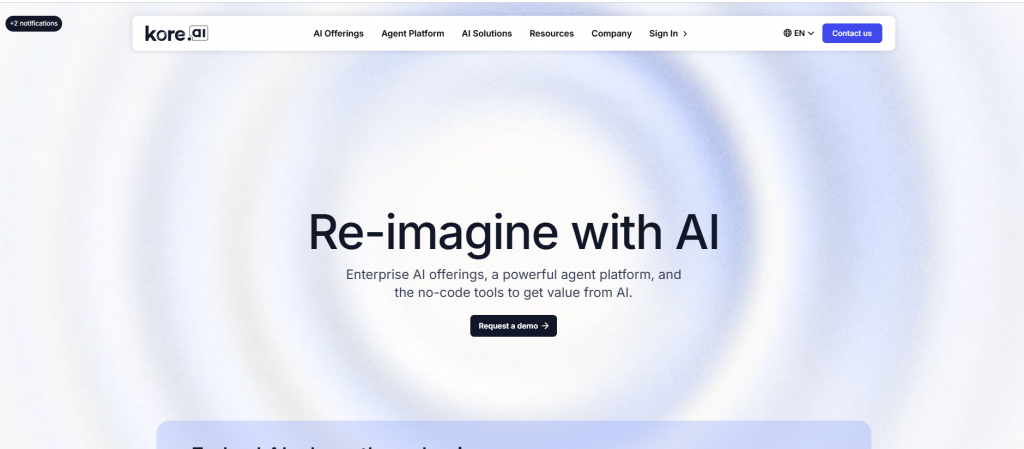
Kore ai is an enterprise-grade conversational AI platform built to manage complex customer interactions across both voice and digital channels. It combines advanced automation with natural language processing to streamline support and improve customer experience at scale.
The platform stands out for its flexibility and depth of analytics. It can automate IVR systems, manage digital chat flows, and provide generative AI insights to optimize service operations. Industry-specific solutions are also available, making it adaptable for sectors such as healthcare, banking, and retail. However, its pricing is designed for large organizations, which may place it out of reach for smaller teams.
Best for: Enterprises with global, multi-channel support needs that require advanced conversational AI and deep analytics.
Review:


Hiver is a customer service platform built directly into Gmail, making it a natural fit for teams already using Google Workspace. Its AI assistant, Harvey, enhances email-based support by helping agents work faster and more accurately.
The platform stands out for its simplicity and focus on email-driven workflows. Harvey AI suggests replies, recommends templates, and summarizes long email threads to speed up responses. It also provides compliance tracking for AI use, giving businesses visibility into how automation is applied. While effective, Hiver is best suited for organizations that rely heavily on Gmail as their main support channel.
Best for: Businesses using Google Workspace that want to manage customer service directly from Gmail.
Review:


Help Scout is a customer service platform designed for simplicity, offering small teams a collaborative inbox, knowledge base, and live chat in one package. With its new AI Assist features, it helps agents work more efficiently while keeping customer interactions personal.
The platform stands out for being approachable and easy to use. AI Assist generates conversation summaries, adjusts tone and language for better communication, and speeds up knowledge base article creation. While it lacks some of the enterprise-level capabilities found in larger platforms, it remains a strong fit for growing businesses that value straightforward support tools.
Best for: SMBs and startups seeking a simple, easy-to-use support solution with practical AI enhancements.
Review:

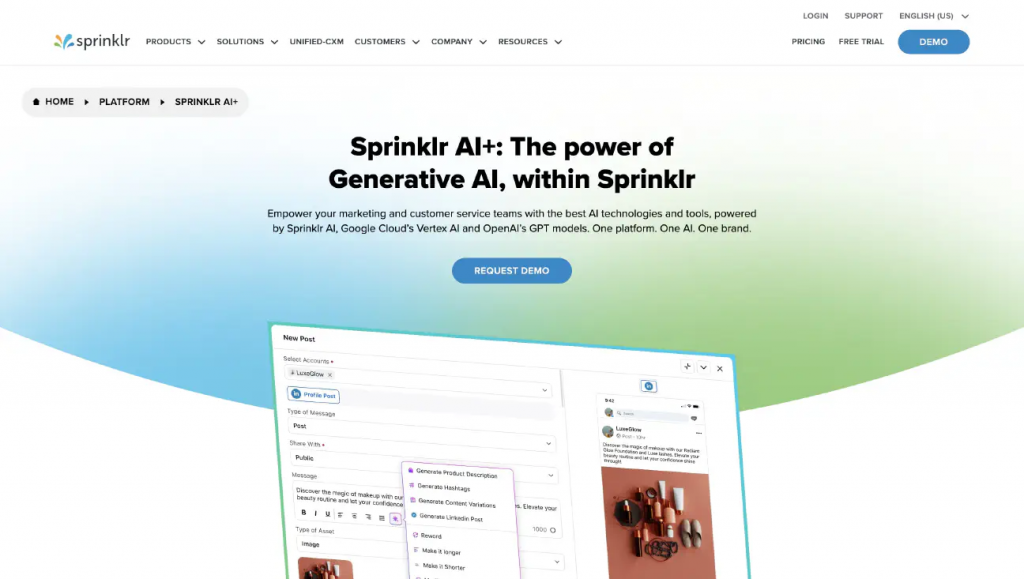
Sprinklr Service is a social-first customer service platform built for enterprises managing high volumes of digital interactions. It uses AI to unify conversations across social, messaging, and traditional support channels, helping brands deliver consistent experiences at scale.
The platform stands out for its generative AI capabilities and breadth of coverage. Agents can craft responses faster with AI assistance, bots handle routine queries across channels, and advanced analytics provide insights from customer data. However, its complexity makes it better suited for large organizations with the resources to implement and manage it effectively.
Best for: Global brands managing large-scale social and digital interactions that require enterprise-grade AI support.
| Software | Core Focus | Ticketing | Knowledge Base | Agent-Assist AI | Agent Mobile App | Sales & Ops Suite | G2 Rating |
|---|---|---|---|---|---|---|---|
| YourGPT | All-in-One AI Suite | ✔ | ✔ | ✔ | ✔ | ✔ | 4.7/5 |
| Zendesk AI | Omnichannel Ticketing | ✔ | ✔ | ✔ | ✔ | ✘ | 4.3/5 |
| Kustomer IQ | CRM-Based Support | ✔ | ✔ | ✔ | ✔ | ✘ | 4.4/5 |
| Intercom (Fin) | Conversational Marketing | ✔ | ✔ | ✔ | ✔ | ~ | 4.5/5 |
| HubSpot Service Hub | Integrated CRM & Service | ✔ | ✔ | ✔ | ✔ | ✔ | 4.4/5 |
| Salesforce Service Cloud | Enterprise-Scale Service | ✔ | ✔ | ✔ | ✔ | ✔ | 4.3/5 |
| Zoho Desk (Zia AI) | Broad Business Ecosystem | ✔ | ✔ | ✔ | ✔ | ~ | 4.4/5 |
| Ada CX | Automation-First Chatbot | ✘ | ✔ | ✘ | ✘ | ✘ | 4.6/5 |
| Kore.ai | Conversational AI Platform | ✘ | ✔ | ✘ | ✘ | ✘ | 4.5/5 |
| Hiver (Harvey AI) | Email (G-Suite) Support | ✔ | ✔ | ✔ | ✔ | ✘ | 4.6/5 |
| Help Scout (AI Assist) | Small Business Helpdesk | ✔ | ✔ | ✔ | ✔ | ✘ | 4.4/5 |
| Sprinklr Service (AI+) | Unified Social & CXM | ✔ | ✔ | ✔ | ✔ | ~ | 4.3/5 |
Buying software usually follows the same path: You compare prices, watch demos, read reviews, and make the purchase. A few months later, half the team stops using it because it doesn’t match how your business actually works.
The right platform solves a real problem without creating another one.
Start by defining what’s slowing your support process today. The clearest pain point should guide your choice.
The best platforms in 2026 don’t try to do everything. They solve one visible problem completely.
AI tools deliver value only when connected to the data sources your team already uses. Before selecting a platform, review your setup:
Platforms such as YourGPT, Intercom, and HubSpot Service Hub integrate directly with most of these tools. Others may require custom APIs or middleware, which increases setup time and dependency on IT.
If your organisation has limited technical resources, consider an complete platform that includes chat, email, voice, and ticketing under one dashboard.
Demo scripts are clean. Real conversations are messy. During trials, use support tickets from the past month with vague requests, emotional messages, and multi-system queries.
Pay attention to how the AI behaves. Does it handle incomplete questions or ask clarifying ones? Does it automatically fetch data or leave agents to search manually? Accuracy under real conditions will tell you far more than speed in a controlled demo.
Every business has a primary channel where customers prefer to communicate. Choose your AI tool around that channel, not industry trends.
E-commerce teams that rely heavily on WhatsApp should consider YourGPT or Zendesk AI for their strong messaging integrations. SaaS companies that serve web or app users will find Intercom or Help Scout more suited to chat and knowledge base workflows.
The goal is not to cover every channel but to ensure consistent service where your customers actually reach out.
They are platforms that use artificial intelligence to understand customer questions, automate repetitive tasks, and provide instant answers. They handle simple queries like order status or FAQs 24/7, freeing human agents for complex issues.
The primary benefits are faster response times (from minutes to seconds), 24/7 availability for customers, and reduced operational costs. AI also improves agent efficiency by handling repetitive questions, allowing them to focus on high-value problems.
The best platform depends on your business requirements. YourGPT stands out as a complete AI-first solution that unifies customer support, sales and workflow automation across Web, WhatsApp, Voice, and Email. It includes a no-code builder and advanced automation tools, creating a complete hub for managing customer service efficiently.
No, AI is designed to augment human teams, not replace them. It handles repetitive, simple queries, which reduces agent workload. This allows human agents to dedicate their time to solving complex, high-empathy issues where they add the most value.
Start by identifying your biggest problem (e.g., slow response times, after-hours support). Prioritize tools that integrate with your existing systems (like your CRM) and cover the channels your customers use most (e.g., WhatsApp, email).
Not for most modern platforms. Tools like YourGPT, HubSpot Service Hub, and Help Scout are designed with no-code builders, allowing teams to create and train AI agents without any technical expertise.
Yes. Leading platforms like YourGPT, Salesforce Service Cloud, and HubSpot are designed to integrate with CRM systems. This connection allows the AI to access customer history, providing more personalized and context-aware support.
Most top platforms are omnichannel, managing conversations across web chat, email, and social media. Advanced solutions like YourGPT and Sprinklr Service also include support for messaging apps (WhatsApp, Messenger) and Voice AI for phone support.
DoneAI is now at the heart of great customer service. It helps teams reply faster, stay consistent across every channel, and focus on the conversations that need a human touch. Whether you run a growing startup or manage a large support team, the right tool can turn customer service into a genuine advantage.
YourGPT brings this idea to life. It blends chat, voice, and automation into one system that is easy to set up and scale. With support for multiple languages and smooth handoff to live agents, it helps businesses serve more customers without losing personal connection.
Start with a small rollout, track real results, and expand once you see the difference in response time and satisfaction. The companies that will stand out in 2026 are the ones that use AI to work smarter while keeping empathy at the centre of every interaction.
YourGPT unifies support, sales, and operations on one AI-first platform. Deliver faster, more consistent service with our blend of advanced automation and human collaboration.
No credit card required • Full access • Cancel anytime
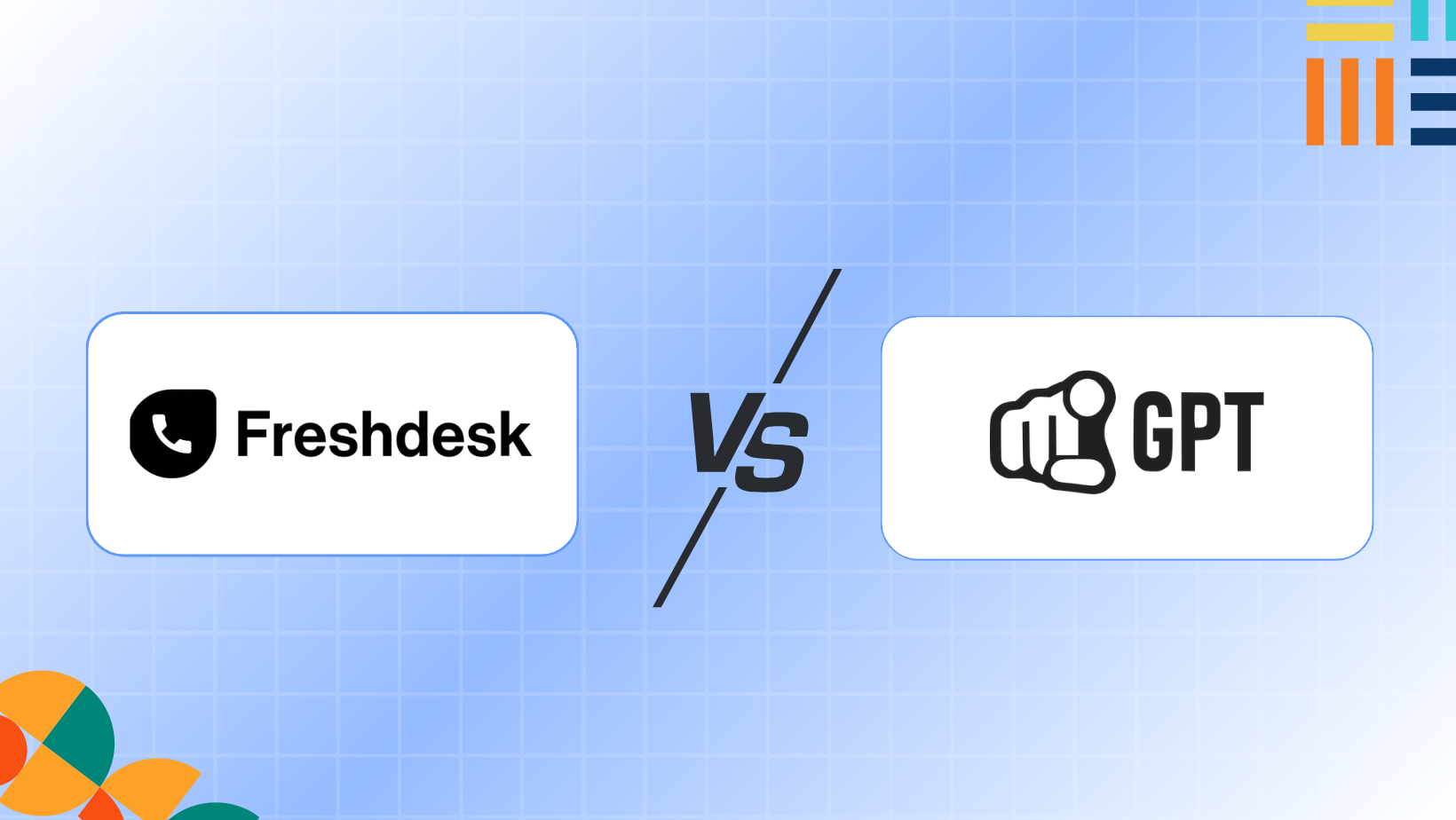
TL;DR: The Core Difference YourGPT Built around AI agents that handle conversations, run workflows, and resolve issues on their own across channels. The goal is to reduce incoming support volume by solving problems before they reach a human. Freshdesk Built around structured ticketing. It focuses on organizing queues, managing SLAs, and tracking agent performance. Humans […]


TLDR Zendesk works well for ticket-based support, but it can feel limiting as teams rely more on automation and multi-channel conversations. This guide compares 7 practical Zendesk alternatives that reduce manual handling and let AI manage common requests across chat and messaging tools Zendesk is one of the popular customer support platform has been around […]


WooCommerce gives store owners flexibility, but that flexibility comes with trade-offs as a store grows. Over time, pages slow down as plugins accumulate, carts get abandoned without obvious reasons, and customer questions start consuming more time than expected. These issues rarely appear all at once, but they compound quickly and directly affect revenue. After working […]

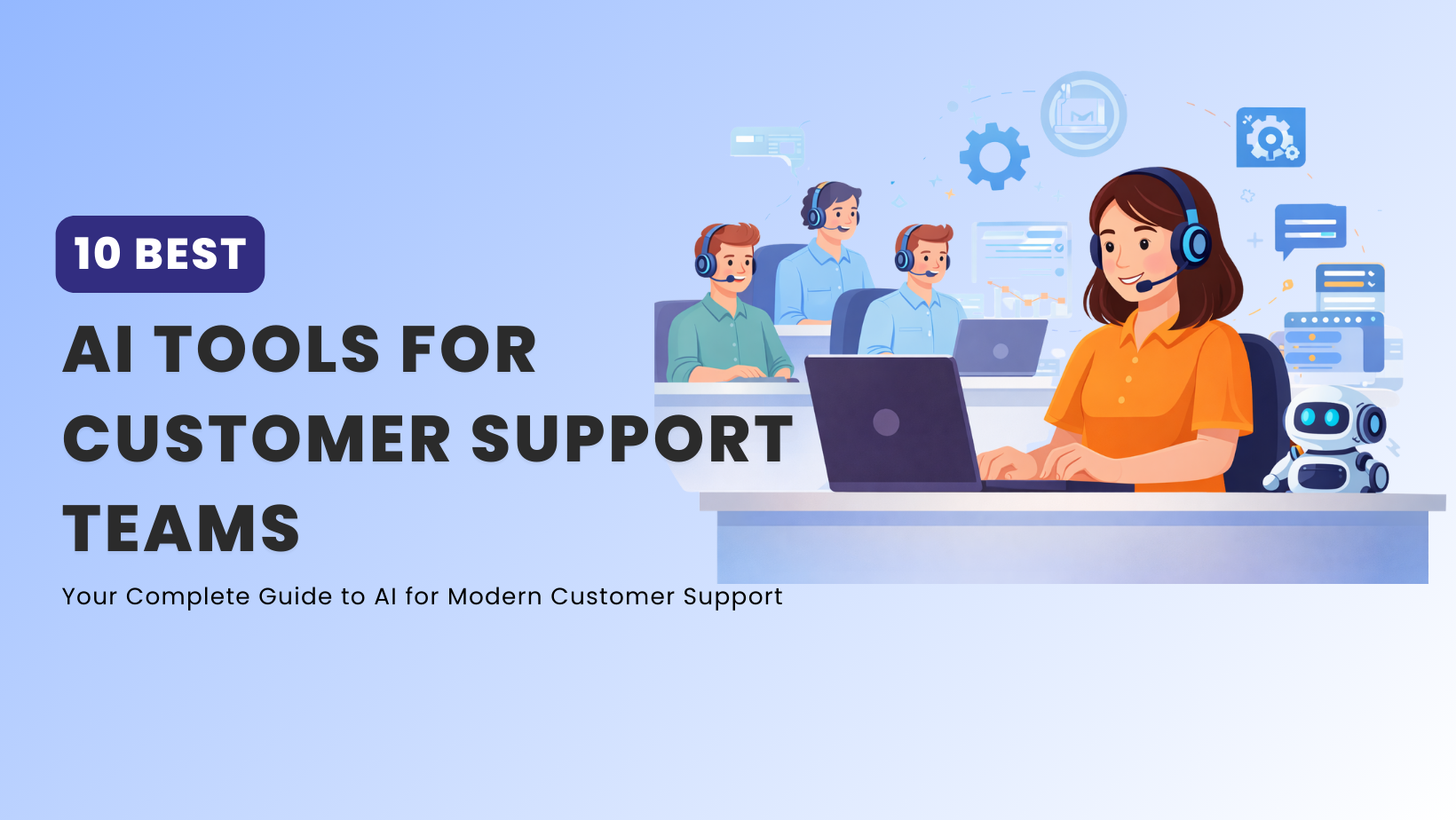
AI customer support tools now form a core part of how many teams handle growing contact volumes and rising customer expectations. At the same time, the market has become crowded, with many similar-looking products and overlapping claims, which makes evaluation harder for support leaders. The AI customer service segment grew from about $12 billion in […]

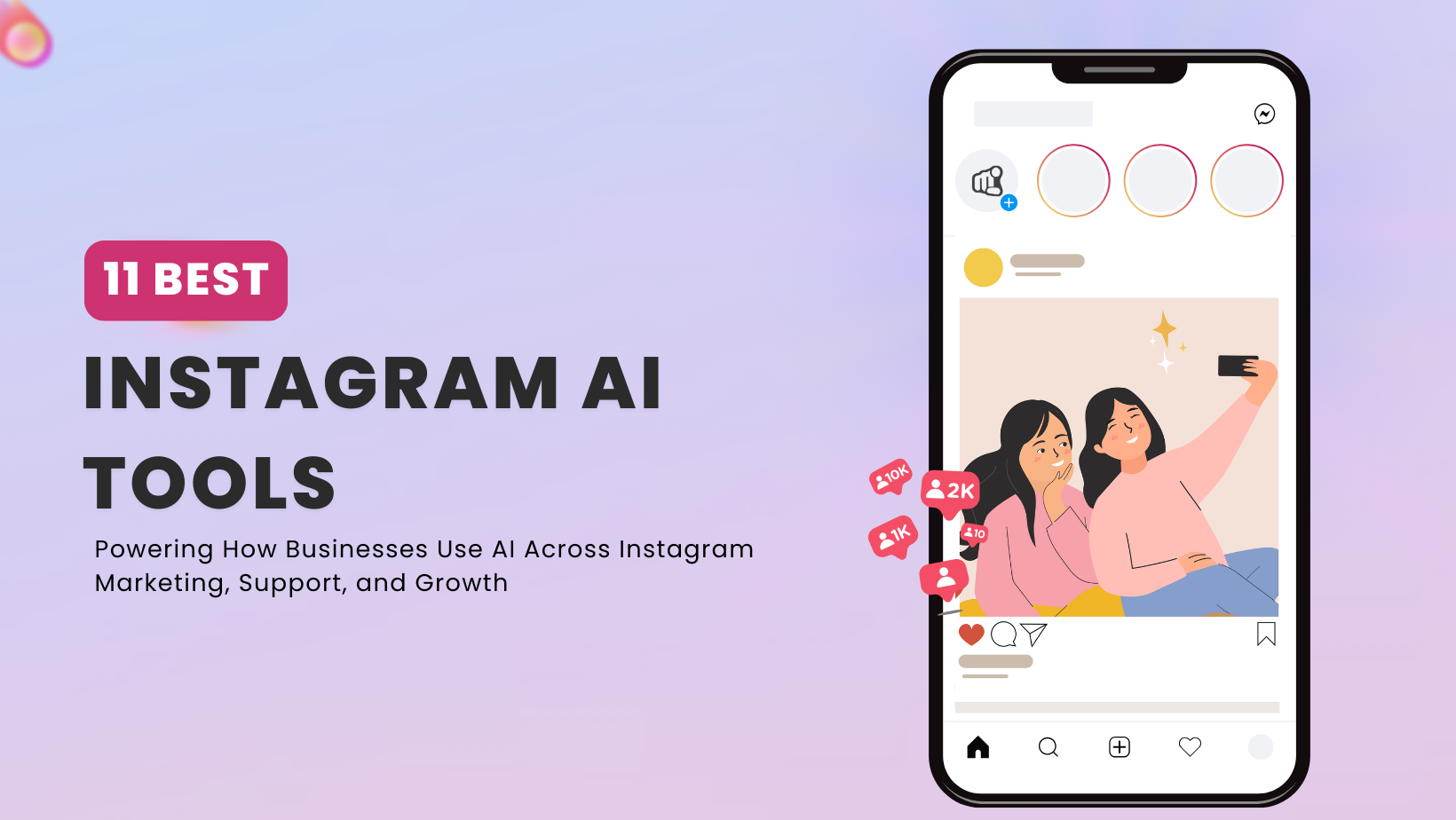
If you run an Instagram account for business in 2026, you already feel the pressure. The platform has 2 billion monthly users now. About 44% of people on Instagram shop every week, and most expect you to reply to their messages in under an hour. Between creating posts, Stories, and Reels, answering DMs, responding to […]

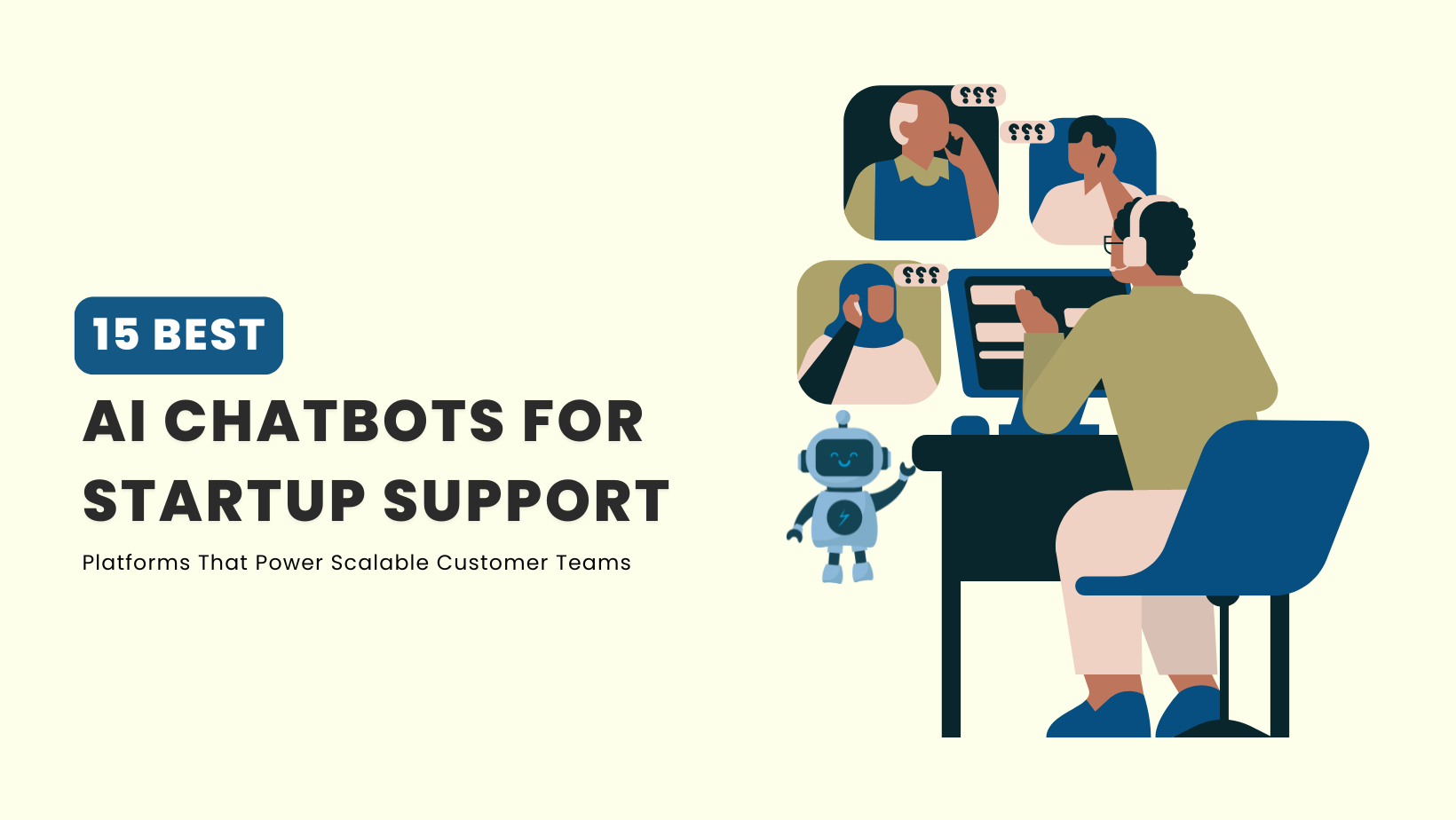
TL;DR Growing startups struggle with rising support volume and limited teams. AI chatbots automate repetitive queries, keep responses consistent, and scale support without extra headcount. Based on 48+ hours of our testing, we evaluated platforms across setup time, accuracy, AI capability, pricing transparency, and real-world performance for startups. AI chatbots help startups manage customer support […]
